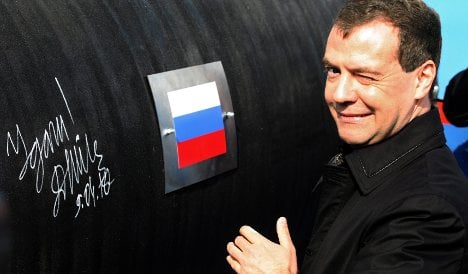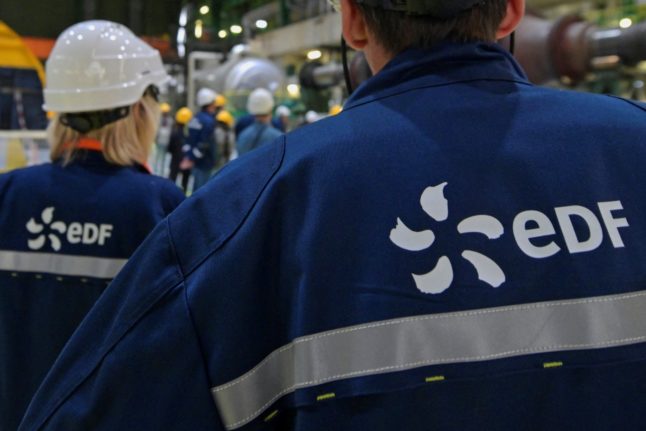Medvedev watched the pipeline being ceremonially welded in the Portovaya bay around 60 kilometres (37 miles) from Vyborg in northwestern Russia. In an opening speech, he called the launch a “remarkable event,” saying the pipeline would assure “energy security” in Europe and “reasonable and acceptable prices.”
“The demand for ‘blue fuel’ in Europe will continue to grow,” Medvedev said, referring to gas.
He then chalked “Good luck” on the pipeline, decorated with Russian and German flags.
Speaking in a video recorded in Berlin, German Chancellor Angela Merkel, welcomed the project’s “enormous economic potential.”
The 1,224-kilometre (758-mile) pipeline is set to be built at a cost of €7.4 billion ($9.9 billion) invested by Russian gas giant Gazprom and its German partners E.On Ruhrgas and BASF-Wintershall.
The pipeline is set to transport 55 billion cubic metres of gas annually to the German city of Greifswald, passing under the territorial waters of Russia, Finland, Sweden, Denmark and Germany.
The aim of the Nord Stream project is to make Germany less dependent on supplies of Russian gas via Ukraine, which have been interrupted in recent years by repeated acrimonious disputes between Moscow and Kiev. But it has faced fierce opposition from Ukraine, Poland and the Baltic states, which fear Moscow could use it to increase political pressure on Eastern Europe.
The European Union currently receives a quarter of its gas supplies from Russia.
The president of the Nord Stream consortium, former German Chancellor Gerhard Schröder, promised the pipeline’s environmental impact would be “minimal,” citing studies he said cost €100 million ($134 million).
The project was personal priority of Schröder, who always supported closer ties between Berlin and Moscow during his time in office. However, he faced considerable criticism for taking a job with the consortium so soon after leaving power in 2004.



 Please whitelist us to continue reading.
Please whitelist us to continue reading.
Member comments